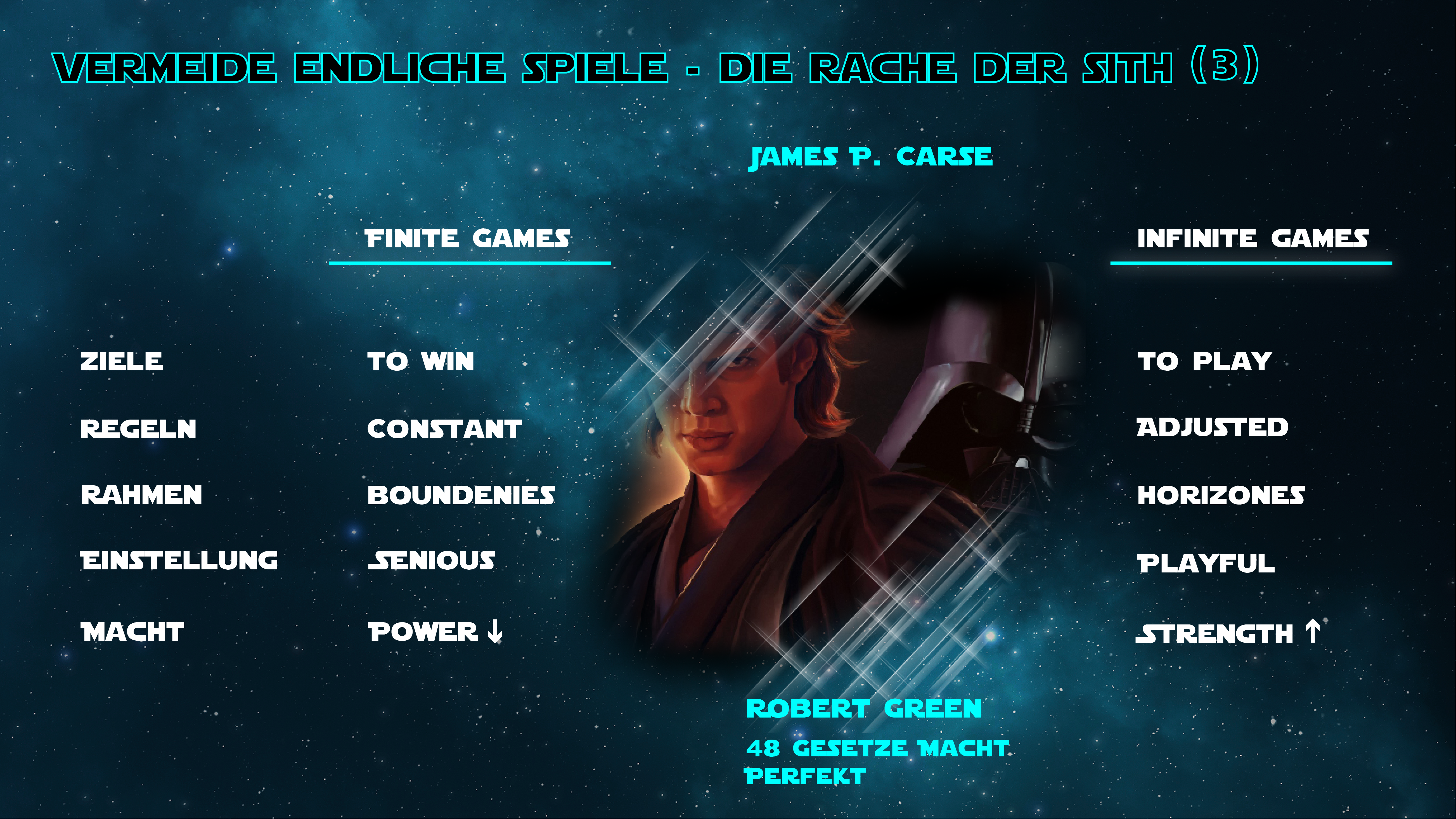Do not play finite games!
- Palpatine is being held prisoner by Count Dooku
- Web released – Anakin kills Dooku
- The game of Anakin
- The Jedi take Ani in the council – not master
- Palpatine wants to seduce Anakin
- Obi-Wan defeats General Grievous
- The Jedi want to arrest the Chancellor
- Then Ani kills Master Windu
- He converts to the dark side and becomes Darth Vader. Palpatine to the Emperor
- First order to Vader – kill all Jedi – start with the little Padawan
- The Order66 is triggered – the Clone Warriors turn against the Jedi
- Obi-Wan fights against Anakin on Mustafar – this burns hard and therefore needs the protective suit
- Padme gets her two children Luke and Leia – are separated from each other
- Master Yoda retreats to the marsh planet
Board and card games have one thing in common. In the end, one player won and everyone else lost. The latter is highly counterproductive for building power. You can not lose. On the other hand, you can not always win, because of the randomness is not possible. As a result, one may not participate in such “ending games”. The aim is to have open games that do not care how a round ends. There is definitely a next round. The final can be avoided. James Peter Carse describes this in his book as infinite games and puts them just in comparison to the finite games. In essence, it is a mindset – never to have lost. There is always a next possibility.

Episode 3 of Revenge of the Sith is essentially about the game of Anakin. The term power games is also very common in our time. Games are differentiated in Finite Games and Infinite Games. The Jesuit Professor James Peter Carse has written a book about this. In order to gain real power, you should not play finite games because the probability of losing them is 50%.



 Deutsch
Deutsch English
English